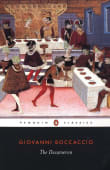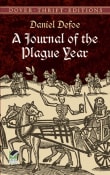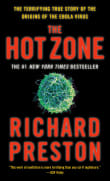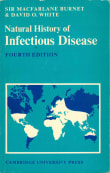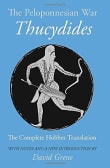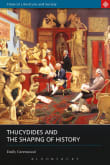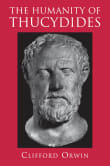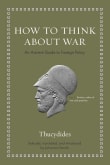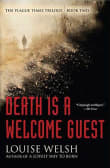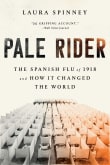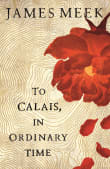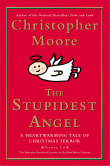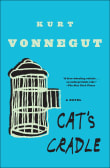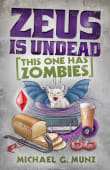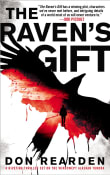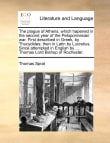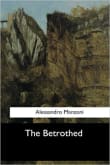The Plague
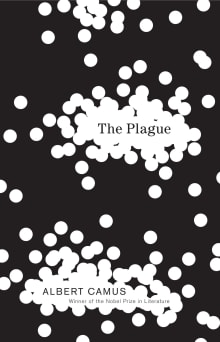
Book description
“Its relevance lashes you across the face.” —Stephen Metcalf, The Los Angeles Times • “A redemptive book, one that wills the reader to believe, even in a time of despair.” —Roger Lowenstein, The Washington Post
A haunting tale of human resilience and hope in the face of unrelieved horror, Albert…
Why read it?
11 authors picked The Plague as one of their favorite books. Why do they recommend it?

Albert Camus's The Plague feels like a book out of time. Clearly, the recent COVID-19 pandemic has left people worldwide with an understanding of what a virulent contagion can do when it sweeps across a community. Indeed, some of the novel's contents seem prescient. Coupled with the inherent philosophy embodied in the book, the tale makes for a forceful read.

I especially love this novel as Camus applies his background in existential philosophy to elevate the medical thriller genre into the realm of the metaphysical.
I love how the novel uses the plot device of an outbreak of the plague to force me as a reader to move beyond the surface questions of “What?” “When?” and “Where?” to ask the deeper question of “Why?” and “What now?”
From Ty's list on medical thrillers for doomsday phobics.

Camus’ Stranger brought me to this book and I was once more pulled in by the same direct prose, the same detachment and the same philosophical inquisitiveness.
There’s a feeling that plagues are inevitable, that they will come no matter what we do, and that our efforts to stop them always degenerate into the absurd. But what struck me most was that this is not fatalism, because although the collective effort is largely useless, hope lies in the small acts of kindness between individuals.
From Alexander's list on where a catastrophe makes society fall apart.
If you love The Plague...

Let’s start with a classic. This is where it all started for me, as the pandemic locked us down and we all needed something tragic to connect to. A deadly disease spreads across the French Algerian city of Oran, and we observe the different reactions within the population as they feel powerless to the subsequent citywide lockdown. I’ve long been a fan of Camus and his matter-of-fact representation of life, death, and existence. The Plague isn’t my favorite book of his, but if you’re looking for something relatable when the world ends, this is the place to start.
From Darrel's list on to read as the world crumbles around us.

Camus was born in Algeria of European ancestry but was by no means privileged (his mother was a cleaner). On immigrating to France, he joined the French Resistance against the Nazis. In The Plague, set in the city of Oran (Algeria), he probes how the townspeople react to the outbreak of a deadly virus. With uncanny resemblances to the reactions to Covid-19, some are terrified, some fatalistic, some point fingers of blame, and some organize and resist – a response that echoes Camus’s preference for a ‘rebellion’ on behalf of humanity and social justice. Albert Camus was popular while…
From Selina's list on white Africans.

When I read The Plague in my twenties, I was reminded of Dante’s Inferno, a journey through increasingly hellish layers. There are literal layers of suffering in The Plague: a disease forces a city into a strict quarantine, and as resources from the outside dwindle and cases surge, bodies pile up. What has stayed with me all this time, though, is the way the story becomes so tense and pressurized it finally buckles into allegory, as the characters and reader try to make sense of the unrelenting horror. This desperate meaning-making evokes The Black Death, Nazi occupations, but…
From Thea's list on creation myths at the end of the world.
If you love Albert Camus...

Dark, sweet, intense perfumes of North Africa emanate from the bitter-sweet semi-autobiographical story of doctor Rieux, monsieur Tarrou, and the rich constellation of characters involved in the tragic events, culminating in a deadly outbreak, set in post-war Algeria.
Glorified by the French liberal intelligentsia, today perhaps slightly passé but still vibrating and proud, Camus’ masterpiece is austere and overwhelming like a tango dancer.
From Rita's list on how the Plague changed history.

Credited as an early existentialist despite his own objections to the label, Albert Camus’ The Plague is a quintessential example of an existentialist’s view of human behaviour and the willingness to accept the responsibility for one’s action or inaction. Set in Oran, Algeria shortly after the end of WWII, The Plague tells the story of a population quarantined from the world due to a deadly outbreak of bubonic plagues. Camus examines human responses to calamity when limits are stressed and then broken through isolation and loss. His characters are a motley assemblage of public servants, clergy, and simple people who…
From Sean's list on to prove the apocalypse can still be fun.

You can’t talk about pandemic novels without referencing the granddaddy of them all - The Plague by Albert Camus. I loved this book so much I named one of my lead characters Bernard, after the hero in the book. The plot: a small town in Algeria is affected by an outbreak of plague, and a group of town folk work together to try to overcome their helplessness in the face of death. They deal with some very recognisable problems – corruption, bureaucracy, quarantine… Some people have read the book as really being about the French resistance to the German occupation…
From Lesley's list on pandemics and humanity.

Historians and political theorists praise Thucydides – but they don’t try to write like him. A small number of modern writers have done, or have at least engaged with ideas about his work (compare W.H. Auden’s poem 1 September 1939, or Anne Carson’s ‘Thucydides in Conversation with Virginia Woolf on the set of The Peloponnesian War’ in Men in the Off Hours). Camus’s novel takes its cue from Thucydides’ account of the devastating outbreak of plague in Athens on 430 BCE: in the style of the narration, the meticulous, matter-of-fact descriptions of the course of disease and…
From Neville's list on understanding Thucydides.
Want books like The Plague?
Our community of 12,000+ authors has personally recommended 85 books like The Plague.


